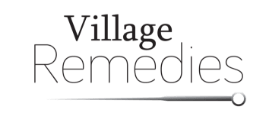Dry Needling Delight: Wellness in Sydney
There is a lot of confusion around the difference between “acupuncture” and “dry needling” today, and for a more in-depth understanding of the history, check out our dry needling article here. The quick answer is that dry needling is actually part of traditional acupuncture therapy and was traditionally known as “ashi” needling. For acupuncturists, this would be considered a form of “local acupuncture” where tender points are used in the affected area and is typically limited to the treatment of musculoskeletal pain or injury.
To be qualified as an acupuncturist in Australia, a person needs to complete a minimum 4 year bachelor of health science degree, involving hundreds of hands-on clinical hours. Once registered, to remain practising, they must continue with 20+ hours per year of professional development. This means that a good acupuncturist will have excellent needle skills and know how to be more targeted with point selection, getting more done with less. They would also look to improve other areas such as stress, sleep, digestion and anything else causing issues so that you feel better overall.
A non-acupuncturist who is using dry needling, typically has gained this qualification over a weekend course and is not required to fulfil any ongoing development or learning, nor are they necessarily using it within every treatment. This means that there is more potential for poor quality needling, resulting in overly painful treatments that may be less effective or only aggravate the issue. These treatments will also only be limited to musculoskeletal complaints.
At Village Remedies Sydney acupuncture clinics in Balmain and the CBD, we use dry needling (ashi needling) techniques where appropriate, but it is only a small part of our toolkit (also see distal acupuncture, motor point acupuncture and electro acupuncture pages). Our practitioners have experience using dry needling with clients who have had issues such as:
- Neck pain and restriction
- Lower back pain
- Hip pain
- Sciatica
- Headaches and migraines
- Rotator cuff injuries
- Shoulder impingement and pain
- Knee pain
- ITB (iliotibial band) pain
- Tennis elbow and golfer’s elbow
- Plantar fasciitis
- Achilles tendinopathy
- And many more chronic pain and sporting injury conditions
If you would like to find out if dry needling in Sydney is right for you, book online with one of our qualified Sydney acupuncturists or contact us today.
Elevate Your Recovery With Dry Needling in Sydney CBD
Whether you're dealing with postural issues from office work or recovering from athletic injuries, dry needling can be a crucial part of your wellness regimen. Discover the benefits of this treatment:
- Targeted Pain Relief
Dry needling in Sydney helps alleviate acute and chronic pain by releasing knots and relieving muscle tension. It’s ideal for conditions like back pain, sports injuries and muscle spasms.
- Improved Range of Motion
By loosening tight muscles and easing trigger points, dry needling helps to improve flexibility and increase range of motion.
- Accelerated Natural Healing
This method helps enhance blood circulation, reduce inflammation and trigger a healing response. It stimulates the nervous system, leading to a release of endorphins, the body’s natural pain relievers.
Village Remedies: Your Go-To for Dry Needling in Sydney
Village Remedies is your trusted destination for acupuncture and dry needling near you. From stress and migraines to athletic injuries, our acupuncture and dry needling treatments help address diverse health conditions. With more than 20 years of collective experience, you can count on our specialists to deliver safe and personalised treatments.
Book an appointment in our dry needling Sydney CBD clinic and begin your path to improved comfort and mobility today
FAQs
How does dry needling differ from acupuncture?
Both methods use fine, stainless-steel, filiform needles inserted into the body, but they differ in their theoretical foundations.
Dry needling is based on modern Western medical principles of anatomy and neurophysiology. It targets muscles, nerves and joints to alleviate pain, spasms or tension by increasing blood flow and oxygen.
In contrast, acupuncture is rooted in traditional Chinese medicine and offers a diverse range of styles and techniques. Some of these techniques include distal acupuncture, which needles areas distant from the problem site. Your practitioner will determine whether dry needling or distal acupuncture is most suitable for your specific condition.
Is dry needling painful?
You may experience brief discomfort, especially when the needle stimulates a trigger point, resulting in a muscle twitch or cramp. While the initial needle insertion is generally painless, you might experience tightness or soreness around the insertion site afterwards, which is normal and typically resolves itself shortly after the treatment. Continuing to move and stretch after may help to alleviate these sensations.
Are there any side effects of dry needling?
The most common side effect of dry needling is soreness during and post-treatment. Other minor side effects might include stiffness and bruising around the insertion site. When looking for dry needling near you, be sure to choose a qualified practitioner to minimise risks and ensure a safe, effective treatment.
How can I prepare for a dry needling session?
Follow these tips to ensure you're ready and comfortable:
- Drink plenty of water before your session. Hydration can help your muscles respond better to treatment.
- Have a light meal or snack before your appointment. This helps prevent any discomfort, such as nausea or dizziness, during the session.
- Avoid consuming alcohol and caffeine before your session, as these substances may affect your body's response to treatment.

